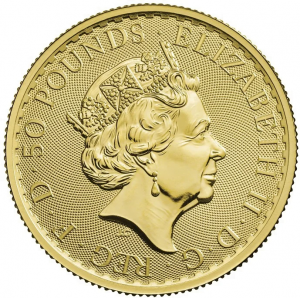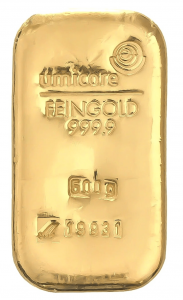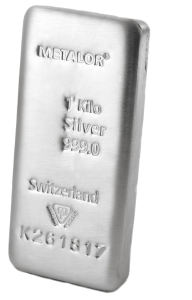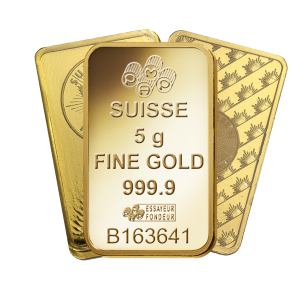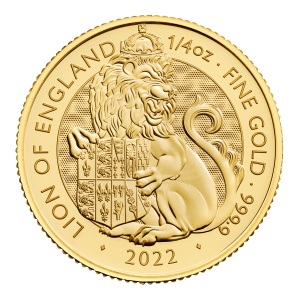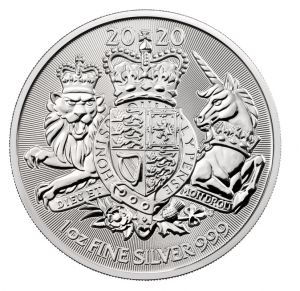Focus on Olympics
Despite a well earnt and very successful Olympics the streets of London seem to be void of life. I know people have less money to spend than they normally do but August generally speaking is the holiday season and people have bolted.
Things are not what they seem though and whilst quiet the political and economic storm is bubbling only inches from the surface.
Francisco Blanch, Head of Global & Multi-Asset Strategy Research at Merrill Lynch believes that ultimately the fed will be forced to do quantitative easing. If it happens in September, as our economists expect, we will get a rally in gold. If it happens after the election (in November), we will get the rally a little bit later; probably we will touch $2,000 an ounce sometime next year.
HSBC recommends holding onto gold as an asset that will gain in value as investors fear the future of the euro and dollar, with governments and central banks expected to intervene to shore up their currencies strength. An HSBC report said. We expect prices to rally to above $1,900/oz by the end of the year. Patience is the most important commodity.
The Bank of England has announced 0% growth for 2012 and
with inflationary pressures looming, investors are seeking refuge in the safe-haven asset. During the short term though, prices may edge upwards on account of gold demand during India’s festival season. Demand typically picks up during this season as gold is a popular gift at festivals and weddings in India.
“.. there could be buying later this month,” said Ashok Jain, proprietor of Chenaji Narsinghji, a wholesaler in Mumbai, adding that some consumers have been selling scrap to fund new jewellery purchases.
With the general consensus bullish on gold and with demand over the short-term expected to pick up, those few clients that aren’t on holiday are able to take advantage of cheap gold and benefit from price increases over the next few weeks.
Blame the bankers?
We are enduring an era whereby institutional society is playing an identical game to the likes of Monopoly. Bankers have the opportunity to create money out of no-where and play by a different set of rules in order to make the game more interesting. Consequences for bankers may be to “pass go” and not collect their bonus but consequences for the unfortunate will either contribute to a devaluation of their existing currency and/or prejudice their position within the pecking order. The board game can even accommodate players that wish to set up cartels and fix interest payments on money borrowed from the bank similar to other real life events.
An anomaly that springs to mind when trying to find an example to illustrate a similarity to the NatWest debacle (where I.T went down and people were unable to draw their own funds from their accounts) – A banker that has been playing Monopoly for hours: he’s lost interest, there is no obvious upside for him continuing to play, his vision has become blurred and all he can hear is a ringing in his ears. At this point people would probably decide to pack the game in or choose a different banker. In reality however, what better alternative is there? More banks – similar problems.
The market is starting to cotton onto the fact that money kept in the bank shouldn’t be a game for the rich that control it, nor should it sit there exposed to devaluation, inflation and counter-party risk. Instead, Savvy investors are protecting their cash and backing it with Physical Gold that (at worst) maintains its value with inflation. By owning Physical Gold – you are eliminating counter-party risk and removing the banker by maintaining your own wealth.
Wait to purchase gold? Or buy gold and wait?
Physical Gold have been talking to their Savvy clients, IFAs and analysts, and they all like to purchase gold on every dip.
In fact, they’re telling me the violent sell-offs we’ve seen (like last Friday’s) are having a positive effect: They’re shaking out the weak hands and speculators and long-term investors are purchasing gold during these panic sell-offs.
This thesis has been confirmed by the data published by the World Gold Council.
The volatility for gold over the last few months will favour long-term investors who buy and hold for years over speculators who try to trade day-to-day gyrations.
Download our FREE Insiders Guide to successful gold and silver Investment here
According to recent World Gold Council data, Central banks increased their gold hoards by 400 metric tons each equal to almost 2,205 pounds in the 12 months through March 31, up from 156 tons during the prior year, The council “is now confident that central banks will continue to buy gold and has added official-sector purchases as a new element of gold demand.”
Short-term speculators and day traders are fleeing the market and we have seen less interest in gold funds and ETFs relative to its physical counterpart. These short-term risk takers are now allocating more and more of their portfolios to physical gold for long-term preservation.
With the UK and Europe privy to another round of quantitative easing and rumours over the U.S following suit, the fundamentals that support gold as a safe haven are becoming stronger especially in the dips and particularly for the long term.
Euro Billions long shot
We all like to indulge in the dream or fantasy that against all possible odds – we could actually win it this time. Through luck, fate or mere persistence – people believe that the more money they throw into the pot – the greater chance they have of achieving their objective.
You wouldn’t be completely misguided if you thought I was talking about gambling. However, the political terminology is that of fiscal policy. A measure of last resort during times of economic crisis should be monetary easing but as a global nation we seem to get to that point whilst exhausting all other options faster than one would think.
Bank governor Mervyn King announced the possibility of another round of QE as of when the UK decided to flood the market with £100bn in order to influence the banks to increase lending activity. Despite this injection of cash – 8 banks have now refused to lend, 15 major Global banks have now been downgraded and Moodys is putting some of the banks on a negative outlook, which is a warning that they could be downgraded again in the future.
Download our FREE 7 step cheat sheet to successful gold & silver investment here
Last week “official” figures suggested that inflation had fallen and therefore the case for the UK to print more money was apparently justifiable. It’s easy to forget that the CPI (Consumer Price Index), the government’s measure for inflation, doesn’t take into account petrol, housing costs, mortgage interest payments and Council Tax. How can inflation have dropped when the average price of a gallon of petrol has gone up by more than 10% over three months? Or when the costs of residential rentals are soaring?
Good money after bad
The government may fool themselves into believing that
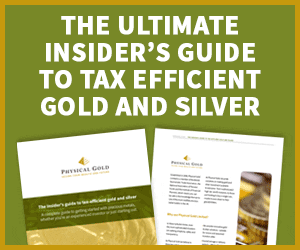
Countries like China and India hold more gold now than they have done over the entire history of mankind. Their rationale is quite the contrary to taking a gamble or an unnecessary risk but that of safety and protection. As gold tends to rise with inflation, they are maintaining their wealth and keeping up with the cost of living.
Currency devaluation
The other effect is that with every stimulus package carries with it the devaluation of currency. This is why the value of gold jumps up considerably every time the government decides to print more money.
French investment bank Société Générale think that the Gold Price could rise considerably and is urging readers of their latest strategy report to “Buy Gold ahead of QE3″.
SocGen’s latest recommendation to Buy Gold in fact repeats a call the bank made last November, predicting monetization of a further $600 billion in US government debt by March 2012…
So forget Euro Billions. Rather than taking a gamble on one’s wealth, the smart money is flocking to gold as a means of protection and with gold representing the strongest buying opportunity in weeks – many of our existing clients continue to prepare for the future.
Email us at info@www.physicalgold.com or call us on 020 7060 9992 for your free gold guide and guidance on your status quo…
What to do when gold falls in value
Recent weeks have brought a great deal of volatility to the gold price.
With the Euro seemingly disintegrating in front of our eyes, the investment community have been hanging onto every news headline and economic data release. The hope is to avoid huge losses by staying ahead of the game and shifting money around to avoid catastrophe. Clearly it’s human nature to want to time everything to perfection to avoid any losses at all and maximise any gains. Unfortunately in reality, without the use of a crystal ball, perfect timing is impossible.
The same goes for timing it just right when investing into physical gold. The fundamental economic and political backdrop which has pushed gold prices to record highs remains in place so the medium term outlook for gold is upwards. However, there’s no denying that the path to new highs will be a volatile one. There will be times when gold falls in value. So what can we do to ride out some of this volatility while still protecting ourselves against the economic depression with physical gold?
Download the 10 secrets to selling your gold coins at the highest price here
One great method in these times is to buy small amounts of gold on a regular basis – smoothing out any price volatility along the way. We offer our clients the ability to fix a Sterling amount each month which they wish to invest into gold with our Monthly Saver.
This is proving very popular right now as investors receive more gold for their money in a month where gold prices have come down while not losing sight of the overall strategy of steady accumulation in an asset which looks set to rise in value over the medium term.
It also provides a great alternative to simply putting a few hundred quid away each month into a savings account or ISA. Interest rates on those accounts are below inflation levels so your money is actually losing value in real terms. Meanwhile we all know that while savings are held in Sterling, its all too easy to dip into them and spend any money accumulated. While gold coins are extremely liquid, it is far easier to leave your accumulating savings well alone, allowing them to grow from month to month.
If you opt for UK gold coins, you will also have the advantage that any gains in your GAA will be Capital Gains Tax free so it really is an alternative to an ISA, while also hedging against a falling Pound.
So if you’re concerned about how to avoid the economic meltdown we read about on a daily basis but you’re unsure about timing, drip feeding your money into physical gold can be a prudent method of protection. Remember the saying that applies to so many facets in life – “If you fail to prepare, prepare to fail”, and failing to prepare for the Euro collapsing could spell the end of any wealth you’ve carefully built over the years. Learn to capitalise ever when gold falls in value.
Eurozone crisis
In one of my recent blogs at Physical Gold, I wrote about the concept of Contagion. The clouds that now linger, present overwhelming jitters and understandably so. We all speak of Greece exiting from the Euro as an isolated inevitability but as we skim past the surface we can see that Spain and Italy are closely following suit and unfortunately the Eurozone crisis will have significant global consequences. Whilst the US is not hugely exposed to Greek debt it has more than $50 billion each to Spain and Ireland, $66 billion to Italy and $6.6 billion to Portugal.
“The exit from the Eurozone of one or two of the smallest countries may not be disastrous, but a disorderly break-up of the euro that includes either Spain or Italy could well be.” (Paul Ashworth, chief U.S. economist for Capital Economics)
Whilst exposure to Sovereign debt is devastating, the following factors also need to be taken into account:
- According to Federal Reserve Chairman Ben Bernanke, European holdings for the US account for 35% of prime U.S. money market funds in February
- A Greek Eurozone default risks the freezing of financial markets similar to the aftermath of Lehmans
- Europe purchased $49.2 billion worth of exports from the U.S in the first quarter of this year, or nearly 13% of overall U.S. exports
- A Greek Eurozone default presents a significant hit to U.S exports especially as the U.S rely on Europe for its manufacturing, this will slow US business, affect the value of US stocks and US GDP.
The significance for global markets is a stark one, especially for the US and in turn – Gold. As exposure to Sovereign debt manifests itself into hefty losses and global stock markets lose liquidity, European as well as US GDP will diminish and the value of currency both in Euro’s and Dollars will suffer. The cost of goods and services will become more expensive and more currency will be required to the buy an ounce of gold thereby increasing support for gold’s safe haven status. The correlation is an interesting one for gold investors as gold has an inverse relationship to the Dollar. Whether or not the US admits to needing to print more money, the Dollar could face immense depression and with QE as an added bonus for Gold’s upswing.
Being renowned as a safe haven asset, gold is most obviously known to perform well during periods of economic instability. Less obvious is that it also provides essential comfort during times of political unrest.
Political unrest can lead to economic instability
While the current global economic downturn is well documented, we’re also now seeing increasing political instability as a consequence of the financial crisis. This can further support the notion of seeking a safe haven for your money for several reasons;
- Political unrest inevitably leads very quickly to falling consumer confidence
- A weak Government can be desperate to maintain political power and its policies can often reflect the need for popularity rather than focus on dealing with debt reduction
- A ruling party who comes under significant threat from political opposition can be indecisive as they lose seats and therefore the ability for strong policy decisions, especially in a coalition arrangement
- A change in power can also provide a change in direction, derailing austerity plans
We are now seeing a number of these examples playing out. In the UK, the
already split coalition Government had a disastrous local election campaign, losing many seats up and down the country to Labour. This could be disastrous as the Government becomes increasingly desperate to prove it has the economy under control despite the double dip recession. This could either lead to radical measures in an attempt to prove its resolve or backtracking to pander to public demand. Either way, fingers are already being pointed by Conservatives at Lib Dems and vice versa in the political blame game. The early coalition fissures are now becoming cracks at the very time the UK needs solidarity and strength.
Over the channel in France, new socialist President Francois Hollande wants an economic recovery focused on growth, not cuts. In fact a challenge to the fiscal belt tightening imposed by the EU was pivotal in his election campaign. This has already led to Germany warning France must stick to EU austerity plans.
Political unrest seems even more prominent in Greece as they admitted failure to form a coalition Government due to extreme political rivalry. This has sparked fears Greece will leave the euro – raising the possibility of new elections next month. This could let in the left-wing Syriza party who have vowed to oppose the very austerity measures designed to stabilise the Greek economy. The IMF will only pay the next round of bailout cash if Athens agrees on £12billion of new cuts next month.
Finally, the world’s biggest economy is also suffering from weakness. Barrack Obama has proved incredibly unpopular but is now pushing forward with sweeping policies to leave his mark before the upcoming elections which could undermine their ability to reduce the huge debt mountain. Top of the agenda are student loans and health reforms both of which will cost the Government billions.
The likelihood is that these political pressures will deepen before they are rectified due to the intense economic restraints currently on all involved. One thing’s for sure, I’d prefer to have some gold in my portfolio while I watch the political mire unfold.
With the financial world as we know it crumbling all around us, it is difficult to know where to put your money to preserve its value and secure your wealth and future.
Gold has always been the obvious investment in unstable times, but the price of gold fell 20% at one point in September while the stock markets also tumbled. Does this signal the end of gold’s meteoric rise or does it represent a fantastic buying opportunity?
Here are the reasons why the time is right to buy gold now
- Despite its volatility in September, gold still ended the 3rd quarter up 11% – far outperforming any other asset class yet again
- Gold fell due to investors selling their gold holdings to pay for losses in other assets like equities and bonds. It has since recovered some of that lost ground
- The fundamental issues in the global economy which have pushed gold upwards have intensified with the Euro currency on the verge of collapse and several countries about to default on their debts
- Inflation is still rising due to increasing commodity prices, meaning cash in the bank loses value. Gold protects against the effects of high inflation
- There remains a distinct lack of gold supply. There have been no major discoveries in the past 5 years and demand for tax free gold coins far outstrips supply
So what can gold do for you?
Owning gold means you have portfolio insurance against any catastrophes threatening your investments. If there is a terror attack, currency collapse, escalating Government debt, high inflation or record unemployment – gold tends to increase in value as a safe haven asset.
Reduce your tax bills!
You could achieve a 40% discount off the gold price through tax relief whilst also protecting your profits from tax by purchasing gold bullion as part of your Self Invested Personal Pension (SIPP). Investing in certain UK gold coins is VAT exempt and Capital Gains Tax (CGT) free, a great opportunity to diversify AND reduce your Inland Revenue exposure.
How much should be invested and for how long?
Experts agree that to achieve a diversified portfolio, 10-30% of your liquid assets should be held in gold. This should ideally be held for a minimum of 3-5 years plus, but the great thing about gold is that it’s incredibly liquid and easy to sell at any time.
Economic Crisis headlines
- Gold has moved down
- Spanish bonds are yielding 6.8%
- S&P 500 has lost 3.5% in 2nd week of April
- Inflation is dangerously high
- Sterling – 17 month high
Bank deputy governor Paul Tucker warned that inflation is ‘uncomfortably’ high at 3.6% and will remain well above the 2 per cent target for much of this year. Consequentially the government has decided to cease all current Quantitative Easing in a last ditch attempt to rescue the Pound.
Whilst the pound rose above $1.60 and €1.22, the issue in many critics’ eyes is, how long can we survive without QE? In the first instance Britain has come under immense pressure to contribute billions more to the Euro Bailout Fund. Secondly the UK needs to enhance GDP and spend within the economy and the only tool available in spite of low interest rates is to print more money. Critics doubt that the UK will be able to maintain their QE stance much longer…
Interestingly the enhanced value of Sterling has meant that it takes fewer pounds to buy the same ounce of gold thereby making it appear cheaper. Demand is in fact going up – especially with the S&P 500 dropping in excess of 3.5% and more so with gold prices representing a very strong buying opportunity at present.
Spain heads the economic crisis
Spain has become front and centre in the European debt crisis with Spanish bonds yielding as much as 6.8%. When that figure reaches 7% – Spain like Greece, Portugal and Ireland will need to be rescued. With France also being dragged into similar discussions the need for a larger Euro bailout Fund and pressure on the UK to contribute is stark.
Crisis and contagion within the global markets is clearly affecting confidence and the equity indices are suffering.
It’s like a house of cards; which card will be drawn first? QE or Euro Bail Out?
Either way, all likely outcomes point towards the masses flocking to gold just like China, India and Brazil.
What is inflation
Inflation is defined as a general rise of prices for goods and services. It’s a slow erosion of the purchasing power of currency and it’s generally accepted that a low steady inflationary rate is good for an economy. However with Inflation now running at twice the Government’s target it is not surprising that gold hasn’t lost its gleam.
People’s wealth is ultimately used in order to buy goods and/or services. Inflation affects the price of that good or service by making it more expensive and as such the spending power of currency used to buy these goods deteriorates.
The following factors influence our ability to keep up with the cost of living and the constant rise of these goods and services.
- Unemployment – at a 16 year high
- Wages – Flat and have not adjusted to reflect inflationary rises
- Interests rates within Banks – below inflationary rates
- Capital Markets – producing limited returns on investment and in some cases extensive losses
Can we protect ourselves?
The factors above restrict us from keeping up with the cost of living and in many cases individuals end up losing money. It’s often difficult to qualify the effects of inflation as £100 in your bank account today will represent the same amount tomorrow. However, over a few years the same amount of money will afford you less and less as time goes on. Our clients represent people from all walks of life; from the ultra-high net worth individual to people of more modest means and they all require protection against inflationary effects.
It was once mentioned that an ounce of gold bought 350 loaves in the time of Nebuchadnezzar, the king of Babylon who died in 562BC. An ounce of gold still buys roughly 350 ordinary sliced loaves today, showing that over 2,500 years gold has proved a very effective hedge against inflation. People seek to preserve their wealth by placing their savings in gold thereby providing a store of wealth. Instead of inflation casting a shadow over one’s wealth – inflation lends itself to gold by enhancing one’s wealth over and above the cost of living.

